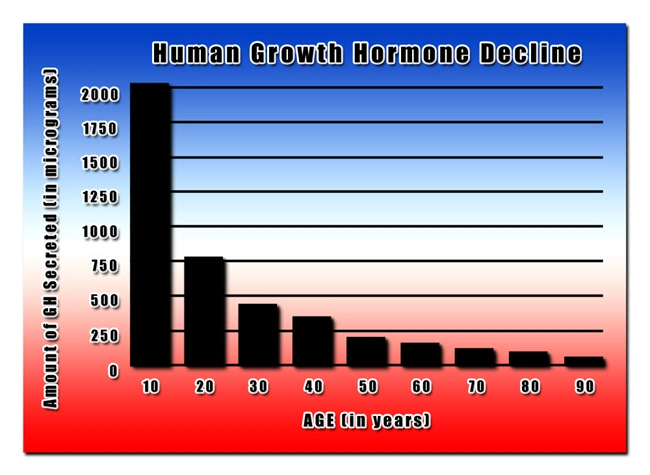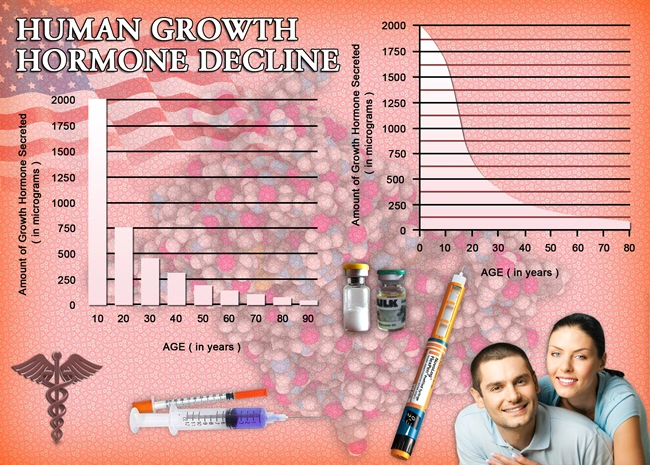
Introduction
Breast cancer, though less common in men than in women, remains a significant health concern that demands effective treatment options. Tamoxifen, a well-established selective estrogen receptor modulator (SERM), has been a cornerstone in the management of hormone receptor-positive breast cancer. However, the quest for alternatives to Tamoxifen is driven by the need to address its side effects and to cater to individual patient needs. This article delves into the latest scientific research aimed at finding viable alternatives to Tamoxifen, specifically tailored to the needs of American males.
The Role of Tamoxifen in Male Breast Cancer
Tamoxifen has been pivotal in treating male breast cancer due to its ability to block estrogen receptors, thereby inhibiting the growth of hormone-sensitive tumors. Despite its efficacy, Tamoxifen is associated with a range of side effects, including hot flashes, mood swings, and an increased risk of blood clots. These side effects can significantly impact the quality of life for male patients, underscoring the need for alternative treatments.
Current Research on Tamoxifen Alternatives
Recent scientific endeavors have focused on identifying new SERMs and other therapeutic agents that could offer similar benefits to Tamoxifen but with a more favorable side effect profile. One promising area of research involves the development of newer SERMs such as raloxifene and toremifene. These compounds have shown potential in preclinical studies to be as effective as Tamoxifen in blocking estrogen receptors while potentially reducing the risk of certain side effects.
Innovative Approaches: Beyond SERMs
Beyond SERMs, researchers are exploring entirely new classes of drugs. Aromatase inhibitors, which work by reducing the production of estrogen in the body, are being investigated for their potential in male breast cancer treatment. Drugs like anastrozole and letrozole have shown promise in clinical trials, offering a different mechanism of action that could be beneficial for patients who do not respond well to Tamoxifen.
Personalized Medicine and Genetic Profiling
The advent of personalized medicine has opened new avenues for tailoring breast cancer treatment to individual genetic profiles. Genetic testing can now identify specific mutations that may influence a patient's response to Tamoxifen or its alternatives. This approach allows for a more targeted treatment strategy, potentially increasing efficacy and reducing side effects. For American males, this means a more personalized approach to managing breast cancer, which could lead to better outcomes and improved quality of life.
Challenges and Future Directions
Despite the progress in research, several challenges remain. The rarity of male breast cancer can make it difficult to conduct large-scale clinical trials, which are essential for validating new treatments. Additionally, the side effect profiles of new drugs must be thoroughly evaluated to ensure they offer a genuine improvement over existing options.
Looking to the future, the integration of advanced technologies such as artificial intelligence and machine learning could revolutionize the way new treatments are developed and tested. These technologies have the potential to analyze vast amounts of data to identify new drug candidates and predict their efficacy and safety in specific patient populations.
Conclusion
The search for Tamoxifen alternatives is a critical area of research that holds promise for improving the treatment of male breast cancer. By exploring new SERMs, investigating other classes of drugs, and embracing personalized medicine, scientists are paving the way for more effective and tolerable treatments. For American males affected by this disease, these advancements offer hope for a future where breast cancer can be managed more effectively, with fewer side effects and a better quality of life.
Contact Us Today For A Free Consultation
Dear Patient,
Once you have completing the above contact form, for security purposes and confirmation, please confirm your information by calling us.
Please call now: 1-800-380-5339.
Welcoming You To Our Clinic, Professor Tom Henderson.

- Tamoxifen: A Key Advance in Treating Male Breast Cancer in the US [Last Updated On: February 20th, 2025] [Originally Added On: February 20th, 2025]
- Tamoxifen: Key to Reducing Breast Cancer Recurrence in American Males [Last Updated On: February 27th, 2025] [Originally Added On: February 27th, 2025]
- Understanding the Pharmacodynamics and Sidelines: A Thorough Scrutiny of Tamoxifen [Last Updated On: March 2nd, 2025] [Originally Added On: March 2nd, 2025]
- Exploring the Multifaceted Role of Tamoxifen: From Breast Cancer Treatment to Emerging Medical Applications [Last Updated On: March 3rd, 2025] [Originally Added On: March 3rd, 2025]
- Exploring Tamoxifen's Role in Male Health and Long-Term Safety Concerns [Last Updated On: March 4th, 2025] [Originally Added On: March 4th, 2025]
- Exploring Tamoxifen Therapy in Men: Benefits, Mechanisms, and Health Implications [Last Updated On: March 5th, 2025] [Originally Added On: March 5th, 2025]
- Exploring Tamoxifen's Role in Treating Hormone-Sensitive Cancers in Adolescent Males [Last Updated On: March 6th, 2025] [Originally Added On: March 6th, 2025]
- The Role of Tamoxifen in Treating Male Breast Cancer: Benefits, Side Effects, and Awareness [Last Updated On: March 7th, 2025] [Originally Added On: March 7th, 2025]
- Deciphering Tamoxifen Resistance Mechanisms in Hormone Receptor-Positive Breast Cancer: Insights and Strategies [Last Updated On: March 8th, 2025] [Originally Added On: March 8th, 2025]
- The Dual Role of Tamoxifen in Preoperative and Postoperative Care for American Males [Last Updated On: March 9th, 2025] [Originally Added On: March 9th, 2025]
- Optimizing Tamoxifen Dosage for Effective Breast Cancer Treatment in American Males [Last Updated On: March 12th, 2025] [Originally Added On: March 12th, 2025]
- Exploring the Efficacy of Tamoxifen in Pediatric Cancer Treatment: A New Frontier in Oncology [Last Updated On: March 13th, 2025] [Originally Added On: March 13th, 2025]
- Unraveling the Biochemical Mechanisms of Tamoxifen in Treating Hormonal Cancers Among American Males [Last Updated On: March 14th, 2025] [Originally Added On: March 14th, 2025]
- Unveiling the Risks: A Comprehensive Look at Long-Term Tamoxifen Use in American Males [Last Updated On: March 15th, 2025] [Originally Added On: March 15th, 2025]
- Tamoxifen: Managing Drug Interactions in American Males with Breast Cancer [Last Updated On: March 18th, 2025] [Originally Added On: March 18th, 2025]
- Tamoxifen's Efficacy and Role in Treating Male Breast Cancer in American Males [Last Updated On: March 19th, 2025] [Originally Added On: March 19th, 2025]
- Tamoxifen: A Comprehensive Guide for American Men's Breast Cancer and Estrogen-Related Conditions [Last Updated On: March 19th, 2025] [Originally Added On: March 19th, 2025]
- Tamoxifen's Role in Cancer Treatment: Insights for American Males from Experimental Studies [Last Updated On: March 19th, 2025] [Originally Added On: March 19th, 2025]
- Tamoxifen for American Males: Breast Cancer Treatment and Prevention Insights [Last Updated On: March 19th, 2025] [Originally Added On: March 19th, 2025]
- Tamoxifen in Male Breast Cancer: Side Effects and Management Strategies [Last Updated On: March 19th, 2025] [Originally Added On: March 19th, 2025]
- Tamoxifen's Role in Reducing Mortality in Male Breast Cancer: Mechanism, Efficacy, Adherence [Last Updated On: March 19th, 2025] [Originally Added On: March 19th, 2025]
- Tamoxifen's Evolving Role in Male Breast Cancer: Treatment, Prevention, and Personalized Medicine [Last Updated On: March 20th, 2025] [Originally Added On: March 20th, 2025]
- Tamoxifen in American Males: Benefits, Risks, and Management Strategies [Last Updated On: March 20th, 2025] [Originally Added On: March 20th, 2025]
- Tamoxifen's Efficacy in American Males with Hormone-Positive Breast Cancer: Treatment and Prevention [Last Updated On: March 21st, 2025] [Originally Added On: March 21st, 2025]
- Tamoxifen's Role in Men's Health: Managing Estrogen-Related Conditions [Last Updated On: March 21st, 2025] [Originally Added On: March 21st, 2025]
- Tamoxifen: Revolutionizing Breast Cancer Treatment for American Men [Last Updated On: March 21st, 2025] [Originally Added On: March 21st, 2025]
- Tamoxifen's Role in Male Hormone Therapy: Benefits and Considerations for American Men [Last Updated On: March 21st, 2025] [Originally Added On: March 21st, 2025]
- Tamoxifen in American Males: Benefits and Risks for Recurrent Cancer Treatment [Last Updated On: March 22nd, 2025] [Originally Added On: March 22nd, 2025]
- Tamoxifen: A Vital Treatment for Hormone Receptor-Positive Breast Cancer in American Men [Last Updated On: March 23rd, 2025] [Originally Added On: March 23rd, 2025]
- Tamoxifen: Revolutionizing Breast Cancer Treatment for American Males [Last Updated On: March 23rd, 2025] [Originally Added On: March 23rd, 2025]
- Tamoxifen in Men: Benefits, Risks, and Management Strategies [Last Updated On: March 23rd, 2025] [Originally Added On: March 23rd, 2025]
- Tamoxifen's Promising Role in Treating Leukemia in Male Patients [Last Updated On: March 23rd, 2025] [Originally Added On: March 23rd, 2025]
- Tamoxifen: Key Cancer Treatment for American Males, Mechanism, and Efficacy [Last Updated On: March 24th, 2025] [Originally Added On: March 24th, 2025]
- Personalizing Tamoxifen Therapy for American Men: Pharmacogenomics and Breast Cancer Treatment [Last Updated On: March 24th, 2025] [Originally Added On: March 24th, 2025]
- Long-Term Effects of Tamoxifen on American Women's Health: A Comprehensive Review [Last Updated On: March 24th, 2025] [Originally Added On: March 24th, 2025]
- Tamoxifen's Potential in Treating Rare Cancers in American Males: A Promising Approach [Last Updated On: March 24th, 2025] [Originally Added On: March 24th, 2025]
- Tamoxifen: Revolutionizing Breast Cancer Treatment in Men and Women [Last Updated On: March 24th, 2025] [Originally Added On: March 24th, 2025]
- Tamoxifen's Impact on Bone Health in American Males: Strategies for Preservation [Last Updated On: March 24th, 2025] [Originally Added On: March 24th, 2025]
- Tamoxifen: A Therapeutic Option for Hormone-Related Gynecomastia in American Males [Last Updated On: March 24th, 2025] [Originally Added On: March 24th, 2025]
- Tamoxifen in American Men: Managing Drug Interactions for Optimal Therapy [Last Updated On: March 25th, 2025] [Originally Added On: March 25th, 2025]
- Tamoxifen Therapy: A Preventive Breakthrough for Male Breast Cancer in America [Last Updated On: March 25th, 2025] [Originally Added On: March 25th, 2025]
- Tamoxifen's Role in Treating and Preventing Male Breast Cancer: A Comprehensive Overview [Last Updated On: March 25th, 2025] [Originally Added On: March 25th, 2025]
- Tamoxifen's Impact on Ovarian Function and Fertility in Breast Cancer Treatment [Last Updated On: March 25th, 2025] [Originally Added On: March 25th, 2025]
- Tamoxifen: A Vital Treatment for Male Breast Cancer in the US [Last Updated On: March 25th, 2025] [Originally Added On: March 25th, 2025]
- Managing Estrogen Fluctuations in American Males with Tamoxifen: A Comprehensive Overview [Last Updated On: March 25th, 2025] [Originally Added On: March 25th, 2025]
- Tamoxifen and Depression in American Men: An Underrated Connection Needing Attention [Last Updated On: March 25th, 2025] [Originally Added On: March 25th, 2025]
- Tamoxifen: Revolutionizing Hormone-Sensitive Cancer Treatment for American Males [Last Updated On: March 25th, 2025] [Originally Added On: March 25th, 2025]
- Tamoxifen: Enhancing Survival in Male Breast Cancer, Dispelling Myths [Last Updated On: March 26th, 2025] [Originally Added On: March 26th, 2025]
- Tamoxifen: A Vital Tool in Men's Health for Breast Cancer and Beyond [Last Updated On: March 26th, 2025] [Originally Added On: March 26th, 2025]
- Tamoxifen Treatment for American Males with Early-Stage Breast Cancer: A Comprehensive Guide [Last Updated On: March 26th, 2025] [Originally Added On: March 26th, 2025]
- Tamoxifen's Role and Efficacy in Treating Male Breast Cancer: A Comprehensive Overview [Last Updated On: March 26th, 2025] [Originally Added On: March 26th, 2025]
- Tamoxifen: Essential Treatment and Prevention for Male Breast Cancer in America [Last Updated On: March 26th, 2025] [Originally Added On: March 26th, 2025]
- Genomic Predictors of Tamoxifen Response in American Male Breast Cancer Patients [Last Updated On: March 26th, 2025] [Originally Added On: March 26th, 2025]
- Tamoxifen's Role in Treating Endocrine Cancers in American Males: A Comprehensive Overview [Last Updated On: March 27th, 2025] [Originally Added On: March 27th, 2025]
- Overcoming Tamoxifen Resistance in American Males: Strategies and Future Directions [Last Updated On: March 27th, 2025] [Originally Added On: March 27th, 2025]
- Tamoxifen: Dispelling Myths and Benefits for American Men's Health [Last Updated On: March 27th, 2025] [Originally Added On: March 27th, 2025]
- Tamoxifen Use Linked to Increased Cataract Risk in American Males: A Review [Last Updated On: March 27th, 2025] [Originally Added On: March 27th, 2025]
- Tamoxifen in Male Cancer Care: Benefits, Risks, and Therapeutic Management [Last Updated On: March 27th, 2025] [Originally Added On: March 27th, 2025]
- Tamoxifen: A Promising Treatment for Advanced Hormonal-Dependent Cancers in American Males [Last Updated On: March 27th, 2025] [Originally Added On: March 27th, 2025]
- Tamoxifen: Bridging Therapeutic Gaps in Advanced Male Breast Cancer Treatment [Last Updated On: March 28th, 2025] [Originally Added On: March 28th, 2025]
- Tamoxifen's Impact on Male Breast Cancer: Treatment, Efficacy, and Future Prospects [Last Updated On: March 28th, 2025] [Originally Added On: March 28th, 2025]
- Tamoxifen's Role in American Male Health: Breast Cancer to Prostate Prevention [Last Updated On: March 30th, 2025] [Originally Added On: March 30th, 2025]
- Tamoxifen's Endocrine Impact on Male Breast Cancer Patients: Management and Insights [Last Updated On: March 30th, 2025] [Originally Added On: March 30th, 2025]
- Tamoxifen's Role in Managing Advanced Cancer in American Males: Benefits and Risks [Last Updated On: March 30th, 2025] [Originally Added On: March 30th, 2025]









